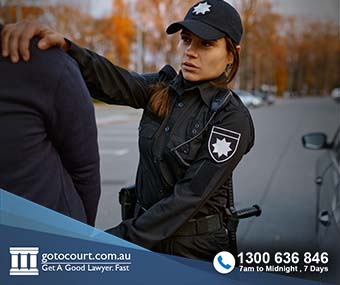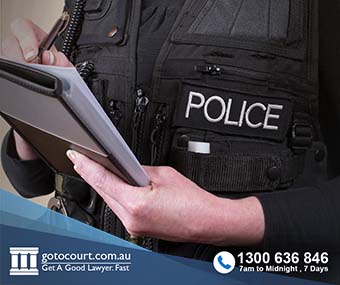What is a Rebuttable Presumption? (Vic)
What is a Rebuttable Presumption? (Vic)
A rebuttable presumption exists where the law requires a court to presume something is the case until evidence is adduced that proves otherwise. A rebuttable presumption in criminal proceedings can favour an accused or against an accused. There are numerous rebuttable presumptions within criminal law. This page seeks to explain them briefly.
Presumption of innocence
The best-known rebuttable presumption is the presumption of innocence. The presumption of innocence continues until the prosecution can prove the commission of a crime beyond a reasonable doubt. It is not up to the defendant to prove that they are not guilty. If the prosecution cannot rebut the presumption of innocence, the defendant must be found not guilty.
Doli incapax
Doli incapax is the rebuttable presumption that a child is incapable of committing a crime. In Victoria, doli incapax applies to children between 10 and 13. This presumption is based on the principle that a child under the age of 14 is not sufficiently mature to form the intent to commit a crime.
The prosecution can rebut the presumption of doli incapax by establishing that the child knew their actions were seriously wrong and not just ‘naughty’. The prosecution case must be strong and clear beyond all doubt or contradiction. The evidence to prove the child’s guilty knowledge must not be mere proof that they did the physical act charged, however horrifying or wrong the act may be. The older the accused child is, the easier it will be for the prosecution to prove their guilt or knowledge of the nature of their actions.
When the prosecution seeks to rebut the presumption of doli incapax, the evidence produced may include a psychological assessment, a police interview transcript or recording, the child’s prior criminal history, evidence given by parents, teachers, psychologists or psychiatrists, as well as evidence of the child’s behaviour before and after the alleged criminal act.
Who bears the burden of proof?
Recent studies of Victorian law suggest that, in practice, the onus of establishing doli incapax has been placed on the defence, which bears an unofficial burden of providing a report (at the client’s cost) to prove the defendant is doli incapax. Studies of Children’s Court matter to suggest the defence has to raise the presumption, adduce evidence supporting doli incapax and argue that the presumption applies.
By contrast, under Section 4N of the Commonwealth Crimes Act, children aged between 10 and 14 can only be liable if the prosecution can prove the child knew their conduct was wrong. This means that when it comes to commonwealth criminal offences, the prosecution bears the burden of rebutting doli incapax.
Bail
Different rebuttable presumptions apply in relation to whether a defendant should or should not be granted bail. Which presumption applies depends on the offence the defendant has been charged with and their bail history (if any).
When a defendant is charged with a minor offence and does not have a history of failing to appear in court, a rebuttable presumption applies that they should be granted bail. However, this can be rebutted by the prosecution if there are circumstances that make it inappropriate for the person to receive bail.
When a defendant is charged with a serious offence or has a long history of failing to appear in court, a rebuttable presumption applies that they should not be granted bail. The defence may rebut such a presumption if they can show that circumstances make it appropriate to grant the person bail.
Certain offences
There are certain offences where legislation provides that the accused bears the burden of disproving certain elements of the offence. This is known as a reverse onus. It means, effectively, that the rebuttable presumption of innocence does not apply. Introducing such provisions has been controversial as some see them as a denial of a fundamental right.
Terrorism offences
One example of such a reverse onus is terrorism offences under the Commonwealth Criminal Code. In respect of many of these offences, the defendant bears the burden of proving that certain elements did not exist. For example, if charged with entering a ‘declared area’ of a foreign country (Section 119.2 Criminal Code), the defendant bears the burden of proving that the area was entered solely for a legitimate purpose. The defence would have to provide factual evidence that they did not enter into or remain in the declared area solely or in part for an illegitimate purpose.
Drug offences
Where a defendant is found in possession of a ‘trafficable’ quantity of drugs, the Criminal Code provides that a person is presumed to have the intent to traffic the drug. Consequently, the defendant must prove on the balance of probabilities, that they did not have such an intention. This task can prove challenging given that intention is usually inferred from conduct.
Law reform
Many people believe that an accused should not be required to adduce evidence to rebut a presumption, as this is contrary to the principles of natural justice. It is a significant task to rebut a legal presumption and understand what is required by the court to do so, particularly when one is self-represented.
Furthermore, it is common for lengthy delays to occur in prosecuting some of the above offences. This may mean that the accused may not be able to recall or produce evidence from the particular day of the alleged offending to satisfy this burden. It is an imperative feature of our judicial system that each allegation must be proved beyond a reasonable doubt, and it is widely felt that this burden should not be shifted to the defendant.
However, others believe that serious offences such as terrorism warrant the curtailment of natural justice principles.
Go To Court Lawyers is a network of experienced solicitors and barristers that provide legal services to clients across Australia. If you are facing an issue involving a rebuttable presumption, Go To Court can assist you with understanding the legal implications of this principle and how it may impact your case.
The lawyers at Go To Court can provide you with tailored legal advice and representation to help you navigate the complex legal issues surrounding rebuttable presumptions. They can assist you with preparing and presenting evidence to rebut the presumption and representing you in court or other legal forums.
If you need legal help with a rebuttable presumption issue, don’t hesitate to contact Go To Court Lawyers by calling 1300 636 846 7am-9pm 7 days a week.

Affordable Lawyers
Our Go To Court Lawyers will assist you in all areas of law. We specialise in providing legal advice urgently – at the time when you need it most. If you need a lawyer right now, today, we can help you – no matter where you are in Australia.How It Works




1. You speak directly to a lawyer
When you call the Go To Court Legal Hotline, you will be connected directly to a lawyer, every time.

2. Get your legal situation assessed
We determine the best way forward in your legal matter, free of charge. If you want to go ahead and book a face-to-face appointment, we will connect you with a specialist in your local area.

3. We arrange everything as needed
If you want to go ahead and book a fact-to-face appointment, we will connect you with a specialist in your local area no matter where you are and even at very short notice.




















